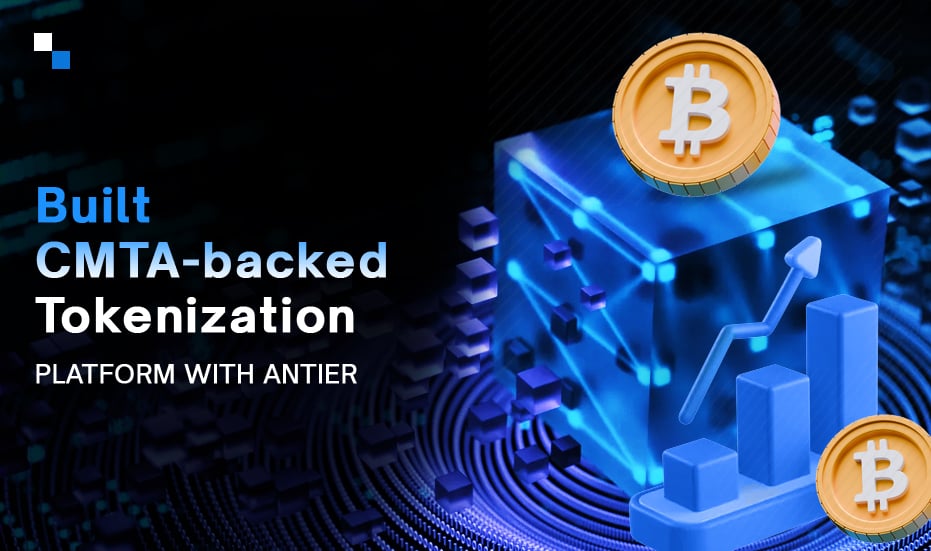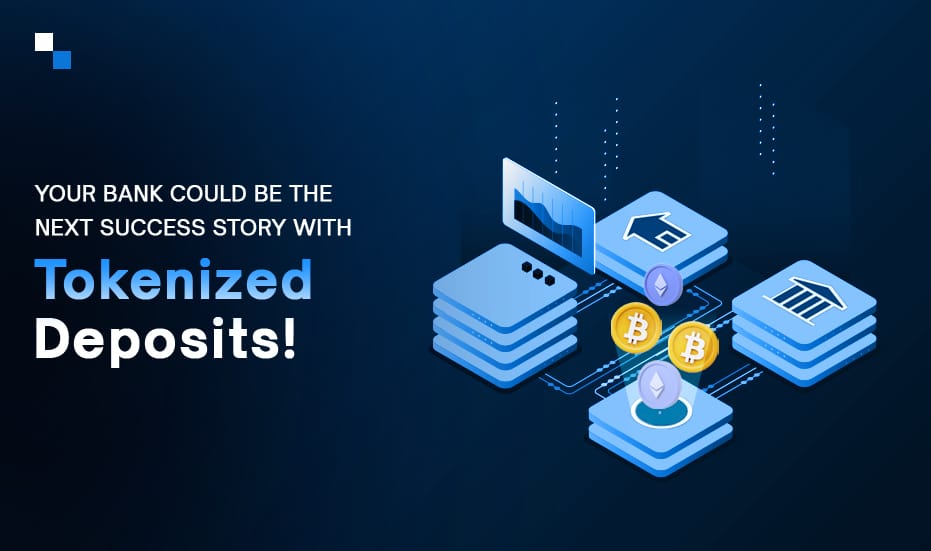
How to Create an AI Crypto Wallet App on Aptos in 2025?
April 10, 2025
Top 10 Ways AI & Blockchain in Energy Supply Chain Is Transforming the Industry
April 11, 2025CMTA Tokenization is gaining widespread popularity across European banks and financial institutions. This Swiss-born, open-source Token standard is introduced by the Capital Market and Technology association to set an industry benchmark for tokenized asset adoption in Switzerland. For fintech leaders looking to expand their digital asset offerings, understanding this standard isn’t just beneficial—it’s becoming essential. This guide explores the role of the CMTA Standard in the RWA Tokenization and how it will help businesses to expand their reach in the global market.
Deciphering CMAT Token Standard
The CMTA Tokenization framework for creating digital tokens is specifically designed for financial instrument tokenization. Rather than being a tradable token itself, it provides the blueprint for building tokens that represent equity, debt securities, and structured products.
What makes CMTAT particularly valuable for financial institutions is its flexibility. It works across different blockchain platforms, with existing implementations for both Ethereum and Tezos. This blockchain-agnostic approach means banks can choose the technology that best fits their needs.
Switzerland has earned its reputation for banking excellence, and this expertise has been carefully applied to the CMTAT’s development. This standard was created through collaboration between respected institutions, including Bitcoin Suisse, Hypothekarbank Lenzburg, SEBA, Swiss quote, Sygnum, and Taurus.
The development aligns perfectly with Switzerland’s forward-thinking “Lex DLT” legislation – legal amendments that enable financial instrument tokenization on blockchain platforms.
Capabilities To Unlock with CMTAT In RWA Tokenization
When the CMTA Tokenization Framework was first created, it focused primarily on tokenizing Swiss company shares. Today, its capabilities have expanded considerably:
- Debt Instruments: The standard fully supports bonds and similar products with built-in functions for managing maturity dates and interest payments.
- Structured Products: Real-world implementations have demonstrated CMTAT’s ability to handle complex financial products, including actively managed certificates with sophisticated payment mechanisms.
- Adaptable Framework: Financial institutions can adjust the token to fit their specific needs while still meeting core CMTA compliance requirements.
This versatility makes CMTA particularly attractive for banks looking to expand offering through Asset Tokenization without starting from zero.
Benefits of CMTAT Token Standard
For Banks or financial institutions looking forward to building an RWA Tokenization Platform, CMTAT offers several practical advantages:
- Open-Source Approach: The reference code is freely available on GitHub, allowing banks to adapt it without restrictive conditions.
- Built on Proven Standards: CMTAT enhances the well-established ERC-20 token standard and incorporates secure code from OpenZeppelin, which is widely recognized for its smart contract security.
- Flexible Architecture: The implementation includes various modules that can be customized according to specific requirements while core compliance modules remain intact.
- Practical Features:
- Customizable rules for transfer restriction, such as approved address lists and transaction limits.
- Support for upgradeable contracts.
- Options for transactions without direct cryptocurrency holdings (essential for traditional institutions).
- Works with major development tools like Truffle Suite, Hardhat, and Foundry.
5. Security-Focused Design: The straightforward token format reduces potential vulnerabilities compared to more complex smart contracts and undergoes thorough third-party security reviews.
CMTAT Token Swiss Market: Success Stories
The CMTAT standard is already being used by Swiss financial institutions and companies, including:
- Audacia Group holding company.
- Cité Gestion became the first private bank to tokenize its share capital.
- E-commerce company QoQa Brew.
- Watch manufacturer CODE41. This enables the tokenization
These real-world examples show how the standard works in practice, offering valuable lessons for financial institutions planning similar projects.
Switzerland Expanding Their Tokenization Capabilities to the Global Market
Switzerland has established a clear lead with its comprehensive legal and technical framework. The Swiss Financial Market Supervisory Authority (FINMA) recently granted the world’s first securities token exchange license, creating a complete ecosystem from issuance to trading.
This regulatory clarity gives financial institutions greater confidence when developing tokenization platforms based on the CMTAT standard, removing much of the uncertainty that affects digital asset projects elsewhere.
Why Must Banks and Financial Institutions Incorporate CMTAT To Tokenization?
For banks and financial firms exploring tokenization platforms, CMTAT offers compelling advantages:
- Regulatory Compliance: The standard was specifically designed to meet Swiss securities law requirements, reducing regulatory concerns.
- Market-Tested Solution: Multiple successful implementations demonstrate the standard’s effectiveness in real financial settings.
- Industry Support: Development and backing from Switzerland’s leading financial institutions provide credibility and stability.
- Practical Simplicity: The focus on essential features rather than unnecessary complexity makes implementation more straightforward and secure.
- Official Certification: CMTA offers a certification program to verify compliance with the standard, providing additional assurance to clients and regulators.
Applications Beyond Switzerland
While CMTAT was initially developed for the Swiss market, its principles and implementation have proven adaptable to other jurisdictions. Financial institutions worldwide can use Switzerland’s work as a foundation for their tokenization initiatives.
The standard’s flexibility is particularly valuable given the growing international interest in tokenized securities and the need for compatible standards across borders. As regulations evolve globally, having a well-designed reference like CMTAT provides a solid starting point for customization.

The Future of Tokenization Standards
The CMTA Tokenization Protocol continues to develop, with regular updates adding new features, security improvements, and alignment with emerging best practices. CMTA members – from legal experts to blockchain engineers – are actively working on new functionalities to enhance the standard’s capabilities.
For financial institutions considering Tokenization platform development, this ongoing evolution ensures that investments in CMTA Tokenization in Finance will remain relevant as technology advances. Rather than becoming obsolete, these systems can benefit from continuous improvements driven by industry leaders.
Moving Forward
For banks and financial firms ready to explore real-world asset tokenization, starting with an established standard like CMTA Tokenization can significantly speed up platform development while reducing compliance and technical risks. The standard provides not just code but a comprehensive approach addressing legal, technical, and operational considerations.
Whether you’re looking to tokenize equity, debt instruments, or other financial products, the CMTA Token standard offers a solid foundation built on Swiss expertise and regulatory clarity. As tokenization becomes increasingly mainstream, having this foundation could prove invaluable for financial institutions aiming to lead in the digital asset space.
Partner With Antier to Build a CMTA-backed Tokenization Platform
Choose Antier for your CMTA Tokenization platform development and bring technical expertise and regulatory knowledge together. Our team has successfully implemented multiple RWA tokenization projects, with specific experience in the CMTAT standard across various blockchain environments.
We understand both the technical complexities and legal requirements that make CMTA implementation challenging. Antier’s development approach prioritizes security, scalability, and compliance—essential qualities when tokenizing financial instruments.
Our collaborative process ensures your specific business requirements shape the final solution, whether tokenizing equity, debt instruments, or structured products.



